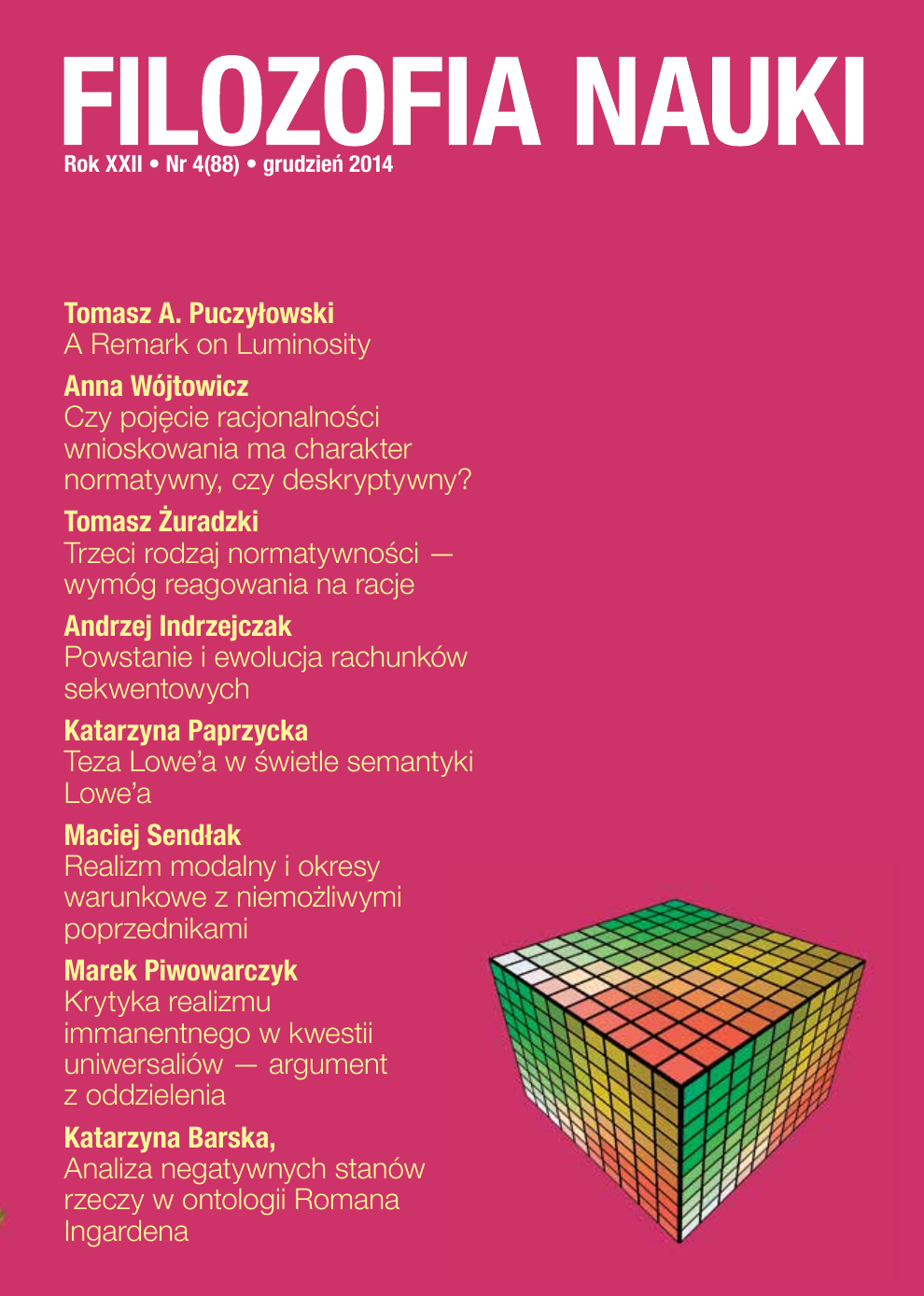A Remark on Luminosity
Keywords:
luminosity, sorites paradox, Wong’s problem, knowledge, belief, mental statesAbstract
Timothy Williamson defines a property of luminosity in the following manner: a condition (or a mental state of a given subject) is luminous if and only if “whenever it obtains (and one is in a position to wonder whether it does), one is in a position to know that it obtains”. Williamson claims that “for virtually no mental state S is the condition that one is in S luminous”. But Wai-hung Wong observes that Williamson’s argumentation for non-luminosity of mental states is dangerously similar in its form to the reasoning underlying the sorites paradox. The observation lead him to the question: is it possible to prove the non-luminosity of some mental states without appeal to a reasoning analogous to the one underlying the sorites paradox? In the paper I present an argument in favour of the claim that Wong’s problem expressed in the question can be resolved. I present a method of determining whether a given state is luminous. However, the proposed test is fragmentary in the sense that it allows us to identify non-luminous states only within the set of propositional attitudes that fulfil certain conditions specified in the paper.Downloads
Published
2014-12-01
How to Cite
Puczyłowski, T. A. (2014). A Remark on Luminosity. The Philosophy of Science, 22(4), 5–16. Retrieved from https://www.fn.uw.edu.pl/index.php/fn/article/view/770
Issue
Section
Articles















 Filozofia Nauki/The Philosophy of Science | ISSN 1230-6894 | e-ISSN 2657-5868
Filozofia Nauki/The Philosophy of Science | ISSN 1230-6894 | e-ISSN 2657-5868